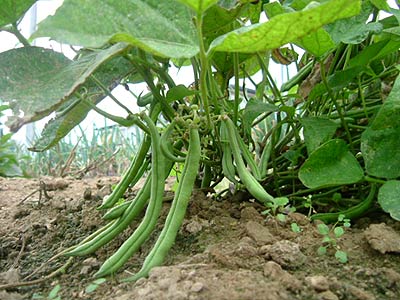
While sitting bored at work, waiting for a computer alignment to run, I came across
this on the NPR website.
It's an organization that's working to promote the collaborative design and construction of urban hydroponic vegetable gardens grown in plastic water bottles that hang in front of windows like curtains.
Hence, "
window farming."
I'm pretty skeptical that the light that trickles through most windows will produce a crop that justifies the effort and expense of such a system. As someone who's spent many hours making Hoagland's, I can say that hydroponic systems are a real pain and, unless you could somehow feed them with worm compost tea, this system is a little too open-loop for my gardening aesthetics.* It's telling that the plants in all their pictures are pretty spindly. It's a lot more difficult to produce robust, good tasting food with hydroponics than with dirt and sunshine.
It looks pretty cool and I definitely get it from an art perspective, but it seems pretty gimmicky from a food perspective. I'm sure winter herbs could be grown just as well in pots on the sill.
At any rate, their primary focus seems to be developing an interactive and supportive online community around the practice, which is
outstanding. I'd love to see more internet-based collaborations built around other forms of amateur farming too.**
We'll see if they prove me wrong about growing
useful amounts of food though.
* oh wait! connect your hydroponics to your aquarium and you'll have most of your plant nutrition! On further inspection of the website, they're working on that too.** hint hint, plant breeding
 So if you haven't heard, Direct to Customer (DTC) genomics has hit the mainstream. Multiple companies (23andMe, deCODEme, etc.) will now genotype you, providing you with a detailed rundown of all your genetic traits and tendencies...
So if you haven't heard, Direct to Customer (DTC) genomics has hit the mainstream. Multiple companies (23andMe, deCODEme, etc.) will now genotype you, providing you with a detailed rundown of all your genetic traits and tendencies...











